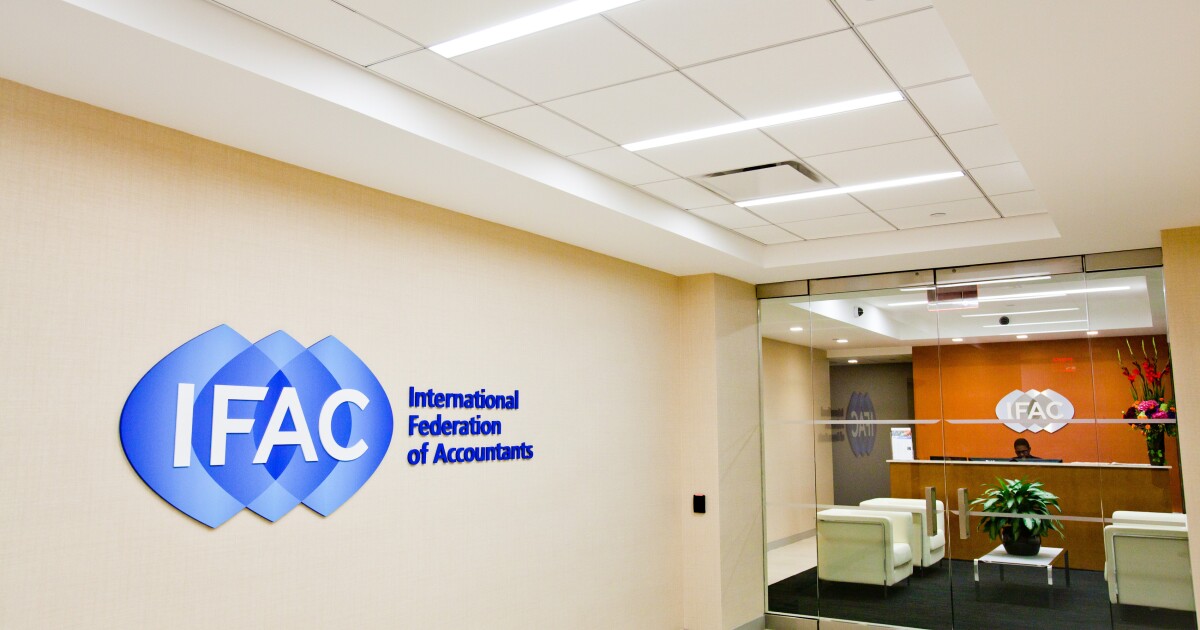Approximately three-quarters of large global companies are receiving assurance services on their sustainability reporting, according to a new report.
The report, released Monday by the International Federation of Accountants and AICPA & CIMA, found 73% of large companies from G20 countries obtained assurance on their sustainability disclosures in 2023, up from 69% in 2022. Five years ago, that figure was 51%. Most of the assurance provided both then and now is of limited scope, however.
Nearly all companies (98%) report some information on sustainability, which is unchanged from last year.
Audit firms, not consultants or other service providers, continue to hold the lead (55%) in offering assurance on sustainability disclosures by large global companies, with broad variations country to country. Audit firms’ overall share of the market declined from 58% in 2022, but there are some mitigating factors for the decrease, including the consolidation of reports. In the European Union, where audit firms historically supply the majority of sustainability assurance, firms started issuing a single assurance report instead of a series of separate reports, reducing the sheer number of reports issued, though they’re for an increased number of assurance clients..
Consultants and non-audit firm service providers are more likely to release multiple greenhouse gas-related assurance reports (for example, an average of 2.5 assurance reports were generated per company in South Korea in 2023).
When companies get assurance for the first time, they often focus on greenhouse gas-related information and begin by engaging other service providers who specialize in that area.
The report found the increased use of audit firms over the previous year in several countries in 2023, including Singapore (+6 percentage points), South Africa (+4), the United Kingdom (+5) and United States (+5). In the case of the U.S., audit firms’ share of sustainability assurance grew from 23% to 28%.
“Auditors have extensive education requirements, adhere to strict independence rules and possess a deep and holistic view of an organization’s business, processes and risk profile,” said Susan Coffey, CEO of public accounting for AICPA & CIMA, in a statement Monday. “That makes them ideal candidates to perform sustainability assurance engagements, and we’re seeing many boards and audit committees endorsing that view as corporate reporting matures.”
Over three-fourths of companies now report sustainability information with financial disclosures in their annual or integrated reports. Organizations that include sustainability information within such reports typically use their statutory auditor to provide assurance over those disclosures.
Use of sustainability information in annual reports has been rising, with 44% of companies including it in their annual report, up from 18% five years ago. Five jurisdictions experienced double-digit increases in sustainability assurance in 2023: Hong Kong, Indonesia, Mexico, Russia and Saudi Arabia.
“The largest global companies have responded well to voluntary systems of sustainability reporting and assurance, driven by investor demand,” said IFAC CEO Lee White in a statement. “With new global standards in place, regulators now have the toolkits to move from voluntary to mandatory disclosures over time, which we expect will further drive high-quality, consistent and comparable sustainability-related information for the investing public and all stakeholders. IFAC and our members, including AICPA & CIMA, remain committed to supporting this shift—advancing trust, good governance, and global alignment in sustainability disclosure, united in shaping a future where sustainability information earns the same level of trust as financial reporting.”


 Blog Post3 days ago
Blog Post3 days ago
 Economics1 week ago
Economics1 week ago
 Personal Finance7 days ago
Personal Finance7 days ago
 Accounting1 week ago
Accounting1 week ago
 Economics7 days ago
Economics7 days ago
 Economics1 week ago
Economics1 week ago
 Personal Finance1 week ago
Personal Finance1 week ago
 Economics5 days ago
Economics5 days ago









